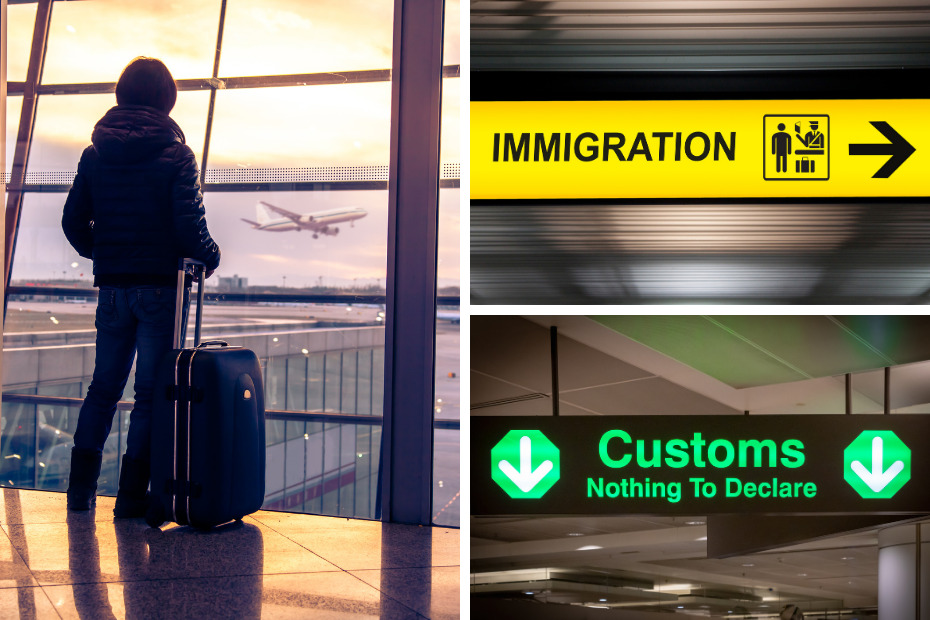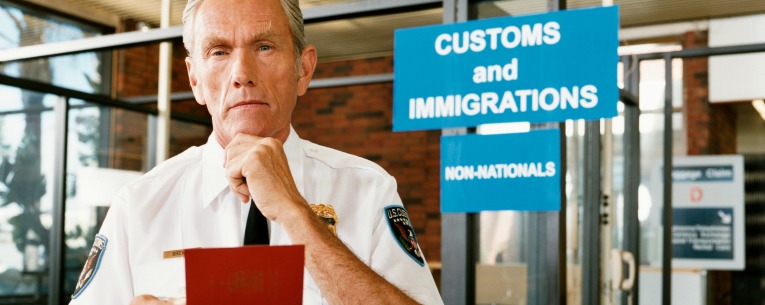
==> Traveling Internationally? Charter Your Private Jet With Us! <==
Private jets provide a luxurious and convenient means of travel, yet many travelers have questions regarding the customs process involved.
What is customs, and is it necessary for private jets to navigate through this system? The quick answer is YES.
This article examines customs procedures specifically for private jet travelers.
From comprehending international travel requirements to essential documentation and tips for ensuring a seamless experience, this guide covers all pertinent information necessary for your upcoming private flight.
What Is a Private Jet?
A private jet is an aircraft that offers exclusive air travel for individuals, corporations, or groups, providing unparalleled convenience and luxury when compared to commercial airlines.
These jets are categorized into various types, including light jets, which are suitable for short trips; midsize jets, which offer a balance of capacity and comfort; and larger corporate jets, designed for long-haul travel with spacious cabins.
The operational advantages of private aviation are evident; it eliminates the challenges associated with crowded terminals and grants access to thousands of airports not serviced by commercial airlines. This capability allows passengers to customize their itineraries, often landing closer to their final destinations.
Whether executives require a swift business trip or a family seeks a luxurious getaway, private jets provide tailored experiences, featuring high-end amenities such as gourmet catering, in-flight entertainment systems, and personalized service that enhance each journey.
This level of exclusivity not only elevates travel but also enhances the overall business experience, making private jets a sought-after choice for those desiring both efficiency and luxury.
Why Do People Use Private Jets?
Individuals opt for private jets for a variety of reasons, primarily centered on convenience, time efficiency, and the luxurious experience they provide. Unlike commercial airlines, private jets enable travelers to bypass lengthy airport customs procedures and benefit from customized flight itineraries that align with their schedules. This level of flexibility is particularly advantageous for business executives who seek to optimize productivity during their travels.
Private jets offer an unparalleled degree of comfort and privacy, making them a preferred choice for high-net-worth individuals and corporate events.
Plus these significant benefits, the capability to access remote locations and lesser-known airports not served by commercial flights greatly enhances the appeal of private aviation. This feature provides a broader range of options for destination selection, thereby streamlining the travel process.
Travelers appreciate that onboard amenities address their every need, ranging from gourmet dining options to spacious meeting areas, ensuring that the journey is as enjoyable as the destination. The increasing demand for private jets further highlights a growing trend towards exclusive travel experiences, where efficiency and luxury are harmoniously integrated.
Customs and Private Jets
Understanding customs regulations is essential for passengers traveling by private jets, as these regulations outline the required procedures for customs clearance at airports.
When undertaking international travel, private jet travelers must navigate various customs requirements, which include submitting a customs declaration for their personal belongings and adhering to the tax regulations set forth by the airport authority.
Moreover, customs officers play a crucial role in ensuring that all flights comply with international laws and the requirements established by the aviation authority, thereby facilitating a seamless travel experience.
What Is Customs?
Customs refers to the governmental authority tasked with regulating the movement of goods, individuals, and transportation across international borders, while enforcing customs regulations that safeguard national interests. This authority plays a crucial role in international travel, particularly for private jets, as customs officers ensure compliance with customs laws, manage the necessary documentation, and facilitate the customs clearance process for passengers and their luggage.
The system is designed to secure borders while allowing for the efficient flow of international commerce and travel.
For travelers using private jets, the customs experience can be both streamlined and complex. Each flight must conform to specific customs processes, which include:
- Declaring any goods of significant value
- Adhering to duty-free limits
- Submitting travel itineraries for pre-clearance when necessary
Customs officers are instrumental in scrutinizing these declarations, conducting inspections as required, and ensuring that all customs enforcement measures are strictly upheld. The implications of non-compliance are significant; failure to adhere to these regulations can result in delays, fines, or even the confiscation of goods.
Therefore, a comprehensive understanding of these customs regulations is essential for ensuring a smooth journey across borders.
Do Private Jets Have to Go Through Customs?
Private jets are required to undergo customs procedures, particularly when traveling internationally, in accordance with customs regulations. Despite the luxury associated with private air travel, passengers remain subject to customs laws, necessitating the declaration of personal items and adherence to the policies established by customs officers upon arrival at foreign airports. This process is essential for ensuring that all travelers comply with international laws and regulations while benefiting from private aviation.
A comprehensive understanding of the customs process is imperative for anyone utilizing private jet travel. Upon arriving at customs checkpoints, passengers will typically need to present their passports along with any required documentation, such as flight manifests and customs declaration forms. This level of scrutiny not only enhances security but also enforces compliance with various regulations pertaining to prohibited items and import duties.
Adhering to these customs procedures is vital in order to prevent delays or potential fines, highlighting the necessity for meticulous preparation prior to embarking on international flights.
International Private Jet Travel
International private jet travel necessitates navigating a complex array of customs procedures and regulations that are crucial for a seamless journey across borders. When flying internationally, private jet passengers must ensure compliance with entry requirements for foreign airports, which typically include submitting a customs declaration detailing their personal items.
Furthermore, comprehending the significance of customs documentation and adhering to customs laws can profoundly influence the travel experience, underscoring the importance for travelers to be well-informed and adequately prepared.
What Is Required for International Travel?
International travel by private jet necessitates specific travel documents and adherence to customs regulations that differ by destination. Passengers must ensure they possess valid passports and any required visas, while also complying with the customs requirements of the foreign airports at which they will land.
This includes understanding luggage allowances and any applicable customs duties or taxes on personal items upon arrival.
It is imperative to verify whether health certificates or vaccination records are necessary, particularly in light of recent global health concerns. Additionally, travelers should be aware of the regulations regarding the importation of certain goods, such as agricultural products or electronics, which may be subject to restrictions.
Failure to comply with these travel documents and regulations can result in significant delays, fines, or even denial of entry, underscoring the importance of thorough preparation for a seamless journey. Being well-informed about the local customs processes can greatly enhance the overall travel experience, allowing individuals to enjoy their trip without unexpected complications.
Do Private Jets Have to Go Through Customs When Traveling Internationally?
Private jets are required to undergo customs procedures when traveling internationally, which includes customs inspections and compliance with the clearance requirements established by the destination country. This is essential, regardless of the private nature of the flight, as customs officials will assess all passengers and their baggage to ensure adherence to local laws and customs regulations.
Non-compliance with these guidelines may result in penalties or delays, underscoring the importance of adequate preparation for travelers.
A comprehensive understanding of customs procedures is crucial, particularly since each country may impose distinct requirements that must be strictly followed. Additionally, travelers should be aware that customs inspections may encompass checks on the aircraft itself and any cargo it carries, thereby adding another layer of compliance.
Incomplete or inaccurate declarations during the customs clearance process can lead to fines or the confiscation of goods. Consequently, possessing a thorough understanding of these regulations is vital for anyone planning to cross international borders in a private jet.
Customs Procedures for Private Jets
Customs procedures for private jets are established to ensure compliance with international travel regulations and to facilitate the efficient movement of passengers and cargo across borders.
These procedures involve interactions with customs officers who verify customs documentation, inspect baggage, and assess any applicable customs duties. A thorough understanding of these procedures is essential for private jet travelers to ensure a smooth experience upon arrival or departure from international airports.
What Happens During Customs Procedures?
During customs procedures for private jets, several essential actions are undertaken to ensure compliance with customs regulations and facilitate efficient customs clearance. Upon arrival at the airport, customs officers typically review the flight manifest and the customs declaration provided by passengers. This may be followed by inspections of personal items and luggage. This systematic approach upholds security and customs regulations while enabling travelers to proceed with their journey.
Plus these initial reviews, it is imperative that important documentation such as passports, visas, and any necessary import permits are readily available for inspection. Travelers should be prepared to respond to inquiries regarding their itinerary and the purpose of their visit. The customs process may also include an assessment of any goods brought into the country to ensure compliance with local laws and regulations.
Effective communication and cooperation with customs officials are critical in expediting the process, allowing travelers to transition smoothly from their arrival to the enjoyment of their intended destination.
What Documents Are Required for Customs?
Travelers utilizing private jets must ensure they prepare specific documentation for customs, including a customs declaration and other essential travel documents mandated by the destination country. This typically includes valid identification, such as passports and visas, as well as any necessary customs forms that declare personal items being transported. Failing to provide the appropriate customs documentation may result in delays or complications during the customs clearance process.
Plus these mandatory documents, travelers should carry any required health certificates or vaccination records, which serve as proof of compliance with local health regulations.
A thorough understanding of the customs regulations of the specific country can facilitate a smooth entry process. Receipts for any purchased goods may be necessary to address customs duties or taxes, underscoring the importance of maintaining organized records.
By preparing these essential documents, travelers can minimize potential obstacles and enhance the efficiency of their travel experience.
What Items Are Prohibited in Private Jets?
Certain items are prohibited from being transported on private jets, much like on commercial flights, due to customs regulations designed to ensure safety and compliance with international laws. Commonly restricted items include illegal drugs, weapons, and hazardous materials, all of which are subject to thorough inspections by customs officers. It is essential for private jet travelers to understand these restrictions to avoid complications during customs clearance.
Plus these well-known items, travelers should be aware that carrying counterfeit goods, specific types of electronics, and substantial amounts of cash can also result in significant issues at customs.
The rationale behind these restrictions is not only to maintain safety but also to uphold legal standards and protect society from illicit activities. Non-compliance with customs regulations can lead to substantial fines, delays, or even legal repercussions.
Therefore, it is advisable for individuals utilizing private jets to familiarize themselves with the comprehensive list of restricted items to ensure a smooth and trouble-free travel experience.

Tips for Private Jet Travelers Going Through Customs
For private jet travelers, effectively navigating customs procedures can be streamlined with proper preparation and a thorough understanding of travel regulations. Familiarity with the customs clearance process can substantially minimize delays and improve the overall travel experience.
By being informed and proactive, travelers can facilitate smoother interactions with customs officers and ensure compliance with all necessary customs regulations.
Be Prepared for Delays
Being adequately prepared for potential customs delays is essential for private jet travelers, as unforeseen circumstances may arise during customs procedures, even for private flights. Factors such as increased security checks, customs inspections, or discrepancies in documentation can result in extended wait times at airports. Recognizing that these situations can occur enables travelers to plan their itineraries with greater foresight.
Furthermore, travelers should be aware that specific regulations may vary from one country to another, often contingent upon the nature of the goods being transported or the nationality of the passengers.
To mitigate potential delays, it is advisable to remain informed about the customs policies of the destination, ensuring that all necessary documentation is in order, including passports and any required import permits.
Maintaining clear communication with the private jet service can facilitate the landing process, allowing travelers to navigate customs efficiently.
By prioritizing travel safety and allocating additional time for any unexpected customs procedures, travelers can significantly reduce stress and enhance the overall journey experience.
Know the Rules and Regulations
Knowledge of customs rules and regulations is essential for private jet travelers to ensure compliance and avoid complications during their journeys. Familiarizing oneself with the customs policies applicable to the destination country aids in the preparation of necessary documentation and in understanding potential customs duties or taxes on personal items. Lack of awareness regarding these regulations may result in fines or delays during customs clearance.
Comprehension of customs compliance requirements not only streamlines the travel process but also enhances the overall experience for travelers. It is imperative that travelers diligently review specific items that may be restricted or require prior approval, as each country enforces its own set of regulations.
A comprehensive understanding of declarations can significantly mitigate the risk of being flagged by customs officials. By adopting a proactive approach and remaining informed about the latest updates in customs regulations, travelers can navigate international borders with ease and confidence, ensuring a smooth and enjoyable journey.
Have All Necessary Documents Ready
Ensuring the availability of all necessary travel documents is essential for a seamless customs experience for private jet travelers. This includes having an accurately completed customs declaration, along with passports, visas, and any other relevant customs documentation required for the destination. Proper organization can significantly reduce the time spent during customs clearance.
Creating a checklist is highly beneficial, emphasizing items such as import permits and receipts for any goods that must be declared. It is advisable to categorize the documents into sections including identification, travel permits, and customs-related paperwork.
Utilizing a dedicated folder or digital application can streamline the organization process, enabling travelers to access and present these documents promptly during inspections. Before the journey, it is important to verify the specific requirements of the destination country, as these can vary greatly and impact the customs process.
Be Honest and Cooperative with Customs Officials
Being honest and cooperative with customs officials is essential for private jet travelers, as transparent communication can facilitate smoother customs inspections and clearance. Customs officers are responsible for enforcing regulations, and demonstrating respect and cooperation can lead to a more efficient process. Any discrepancies or false declarations can result in serious consequences, including fines or delays.
For individuals embarking on international journeys, adherence to customs compliance is not only a legal requirement but also a vital practice that can streamline the entire travel experience. By proactively addressing potential issues and providing accurate information regarding the goods and baggage being transported, travelers exhibit good faith and reliability. This proactive approach helps establish trust with customs representatives and minimizes the likelihood of extended inspections or misunderstandings.
Ultimately, such positive interactions can significantly reduce wait times and enhance overall satisfaction with the travel experience.
Frequently Asked Questions
Do private jets have to go through customs in every country?
Yes, private jets are required to go through customs in every country they enter, just like commercial flights.
Do private jets have to go through customs in the same way as commercial flights?
Yes, private jets have to follow the same customs procedures as commercial flights, including filling out customs declaration forms and going through security checks.
Are private jet passengers subject to customs inspections?
Yes, just like commercial flights, private jet passengers may be subject to customs inspections upon arrival at their destination.
Do private jets have to wait in line at customs?
No, private jets often have their own designated customs area and can bypass waiting in line with commercial flights.
Are there any exceptions for private jets in terms of customs procedures?
Yes, some countries have special customs procedures for private jets, such as pre-clearance or expedited clearance for certain types of private jet operations.
Do private jets have to pay any additional fees for customs clearance?
Yes, private jets are subject to customs fees and duties, just like commercial flights. These fees may vary depending on the country and type of private jet operation.



